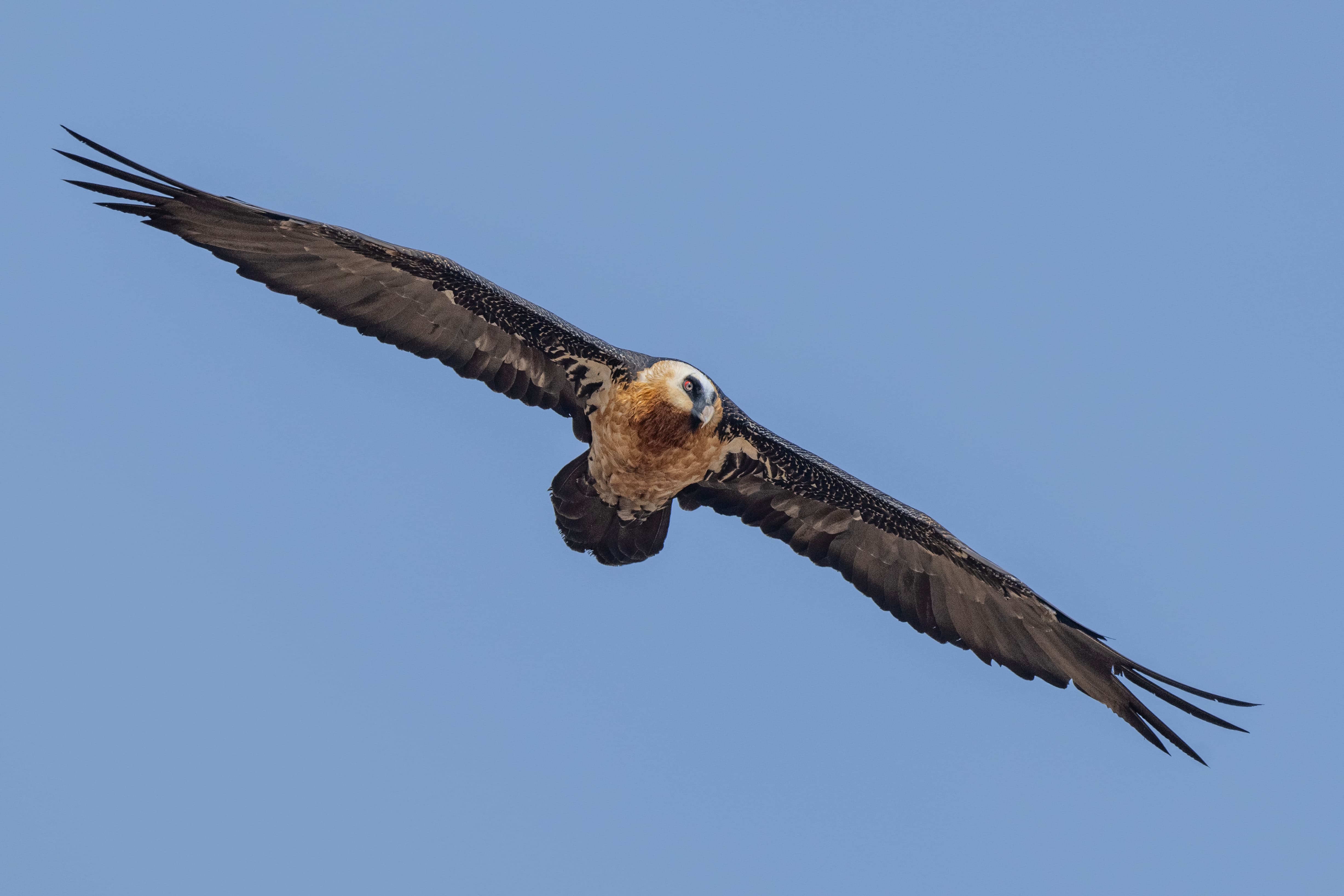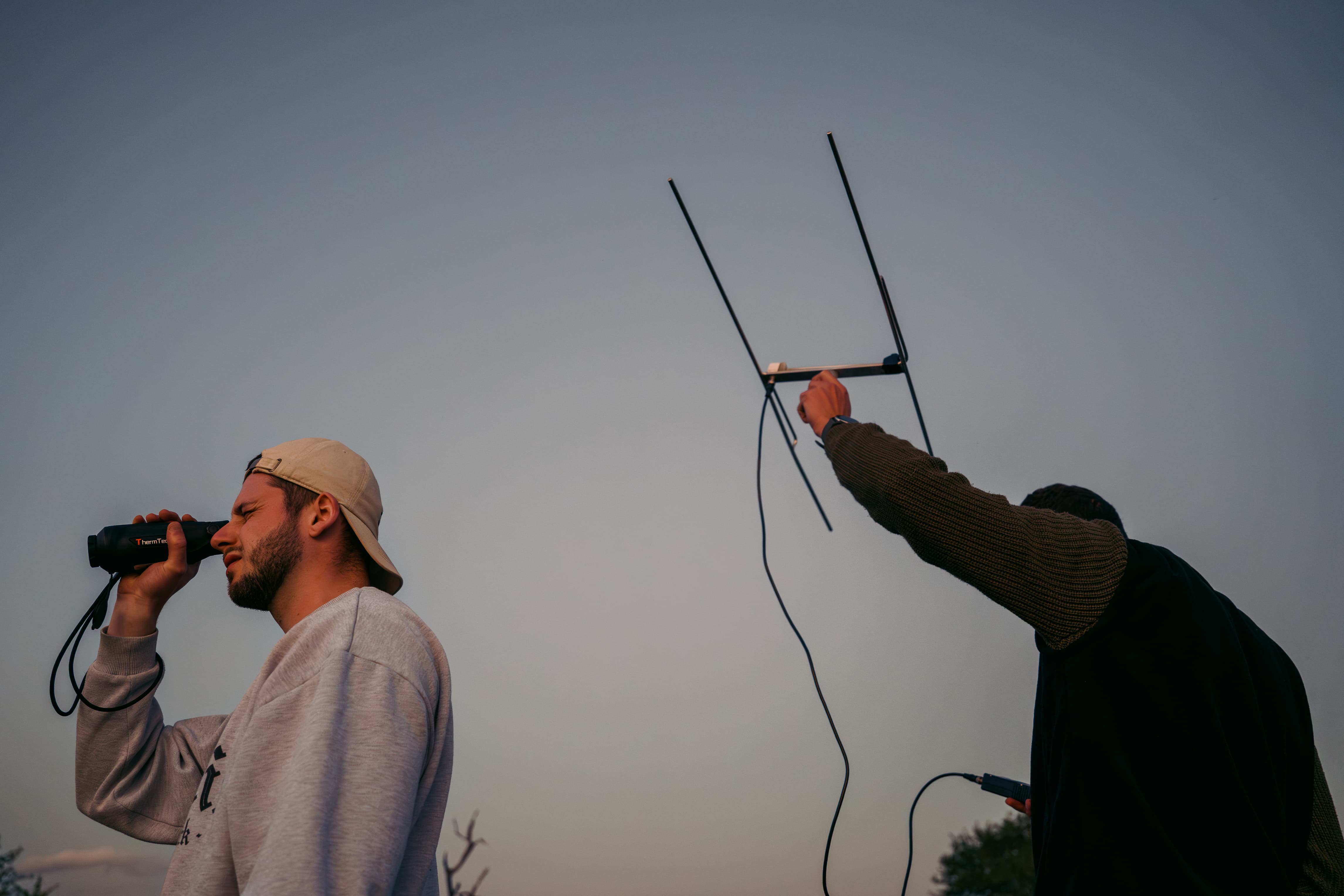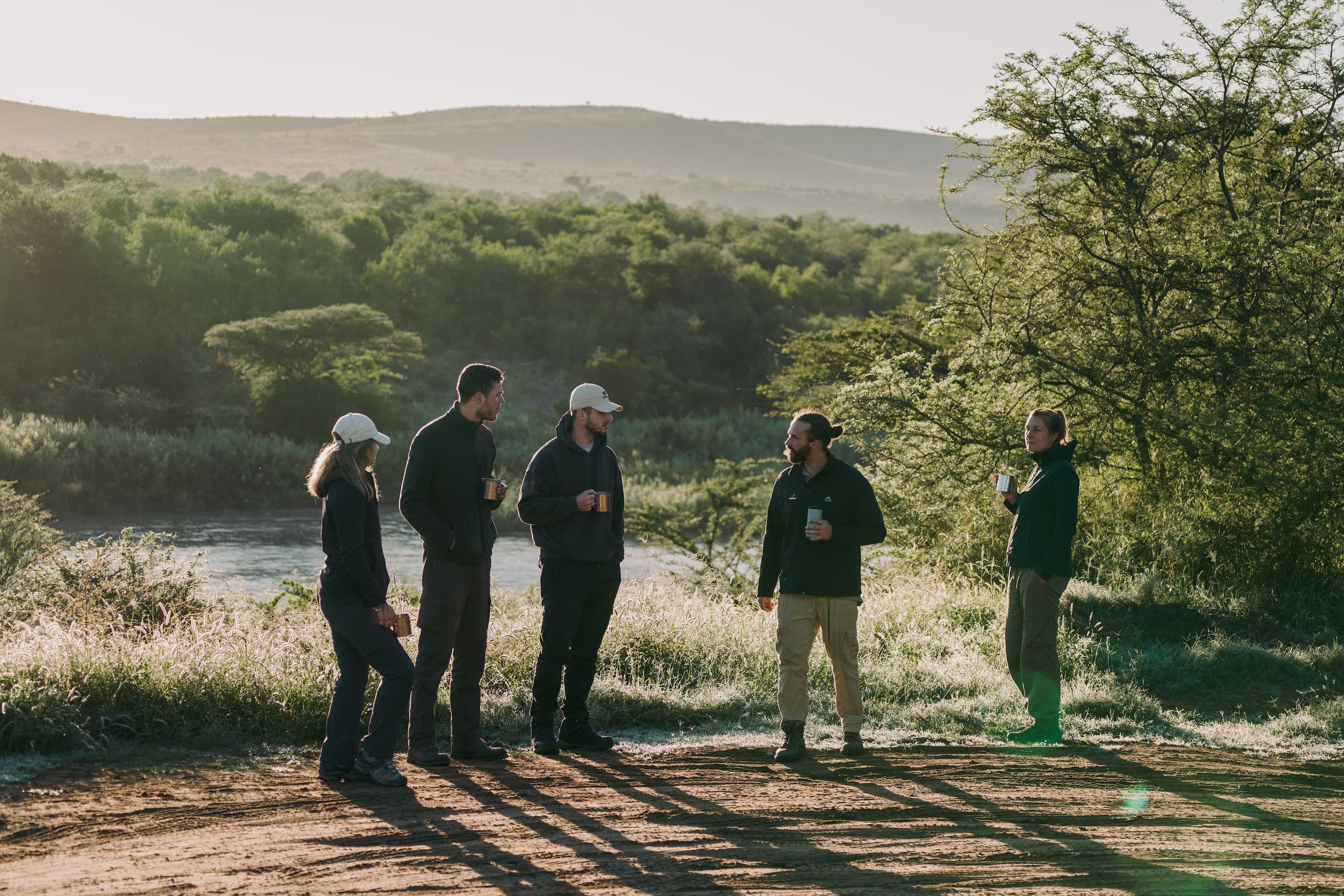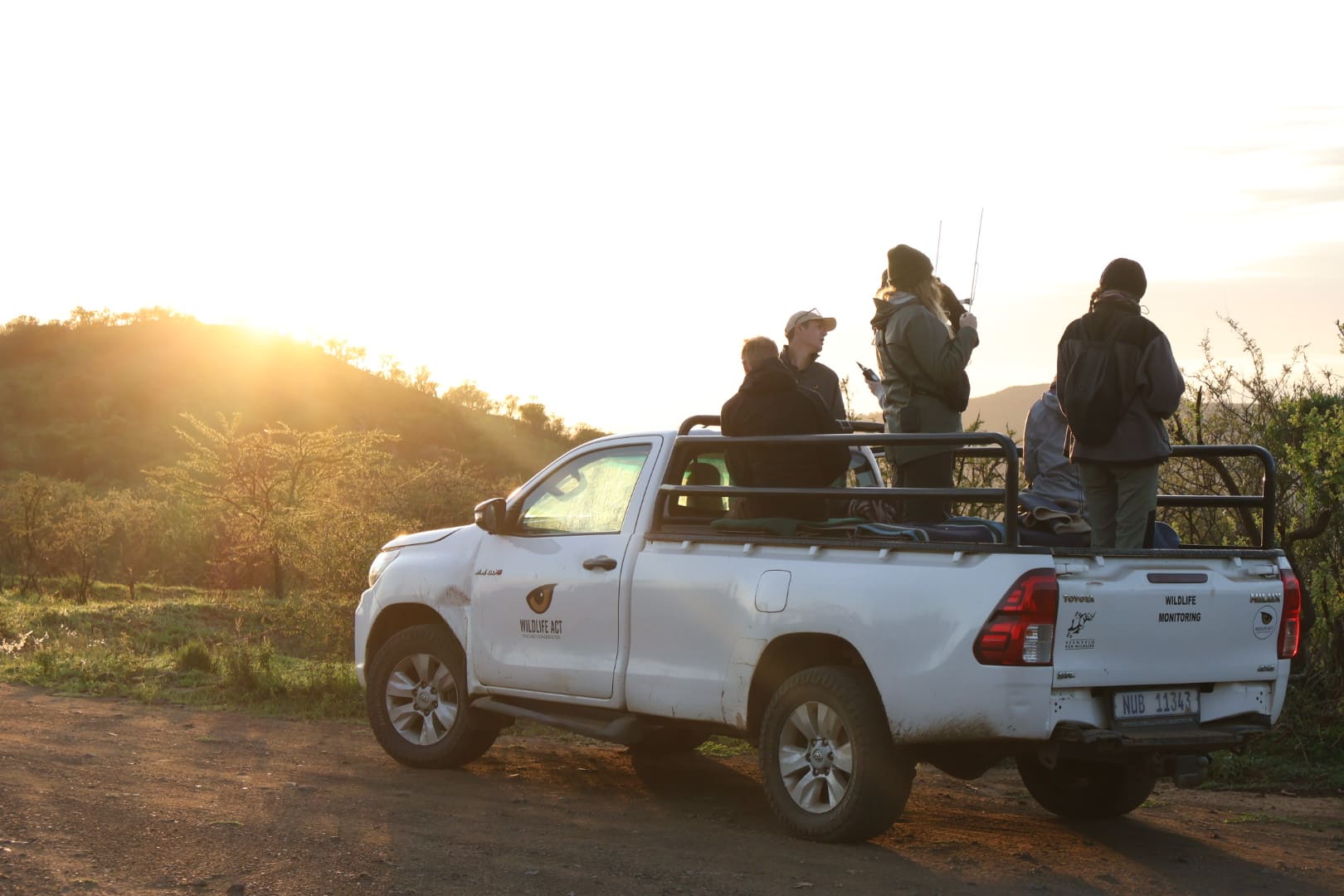Learn how to contribute to real, on-the-ground conservation with Wildlife ACT in Africa (Zululand). Join small teams to monitor endangered species, collect vital data and support the protection of Africa's wild spaces. This is an opportunity to make a meaningful impact and be part of a solution rooted in purpose.
A Direct Path to African Conservation Impact
Joining a conservation team in the field offers a profound and meaningful way to contribute directly to protecting endangered species. South Africa is a global stronghold for biodiversity, and within this landscape, Zululand stands out as a region of exceptional conservation value. Its diverse network of coastal scarp forests, rolling grasslands, and important river systems creates a critical habitat for a wide range of threatened species. These include African Wild Dogs, White and Black Rhinos, Cheetahs, Elephants, Vultures, Lions, and other species central to ecosystem health. It is here, in this living laboratory of conservation, that Wildlife ACT works to monitor and protect these iconic wildlife species.
Use this guide to look inside that experience, and get a comprehensive overview of what to expect as a wildlife volunteer with us.
The Wildlife ACT volunteer programs in Africa are a chance to move beyond passive observation and actively participate in hands-on conservation activities. You will learn about the daily routines of a field monitor, from the early-morning chill of a telemetry session to the midday work of data analysis. You will see precisely how your contribution directly supports species recovery and informed protected area management.
Our work is purpose-driven, focused on real fieldwork and in-the-moment education, and it is rooted in making a tangible difference.
When you join us, you are not just a visitor. You become part of a professional team, supported by respected partners like the WWF and the International Union for Conservation of Nature (IUCN).
This is a unique opportunity to contribute to real conservation outcomes and become part of a larger story of resilience and hope. This program offers you the chance to see conservation in action, understanding its challenges and celebrating its successes from the front line.
You will leave with a deeper understanding of the complex work that goes into protecting our planet's most vulnerable species.
“Really really enjoyed having first hand encounters with the amazing wildlife while contributing the conservation efforts and directly seeing the impact!” - Phoebe Holmes (April 2025)
Read more about what a day volunteering with Wildlife ACT looks like here:
What to Expect from a Wildlife Volunteer Experience
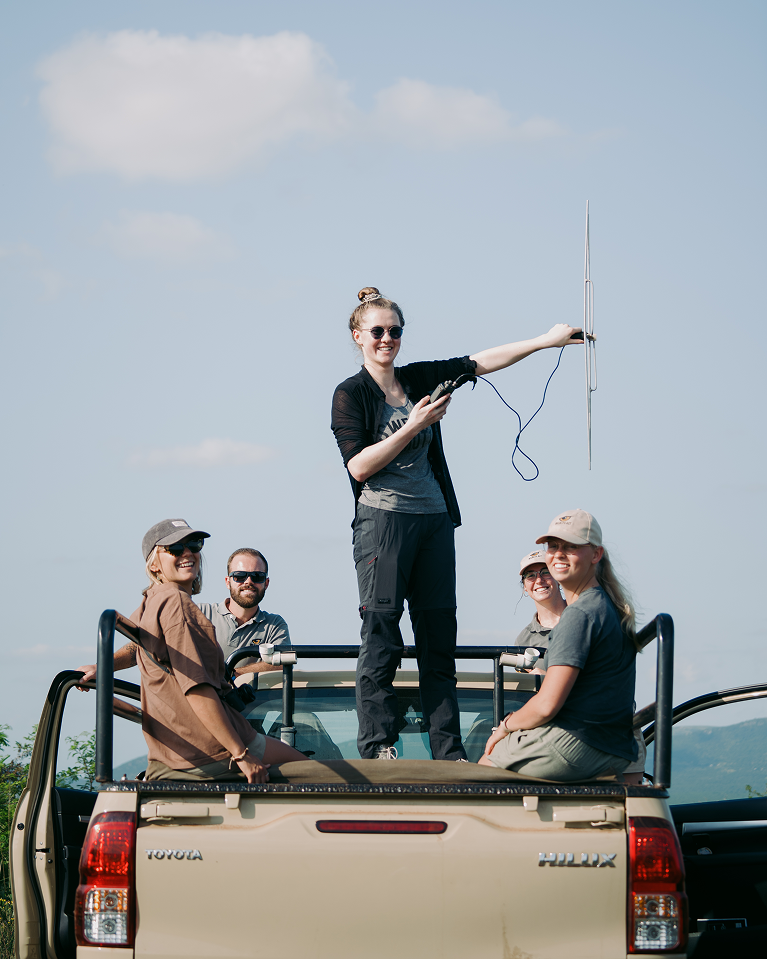
The Wildlife ACT Endangered Species Volunteer Experiences program is a structured, science-driven initiative designed to meet genuine conservation needs. It is not a safari, but a chance to become an active contributor to measurable conservation outcomes.
The program operates across key protected areas in Zululand, including the Hluhluwe-iMfolozi Park and Manyoni Private Game Reserve, which are home to some of the most significant wildlife populations in the region. (Zululand Observer)
Our work provides a consistent, reliable monitoring service to these vital landscapes that would otherwise lack the capacity to carry out this work. This is a crucial distinction, as every day in the field is a direct contribution to species management plans and conservation strategies.
Volunteers assist with data collection and field support that would not be possible without their presence. Groups are intentionally kept small, with a maximum of six participants per site, to ensure minimal environmental impact and to provide meaningful, hands-on training.
This small group size also promotes a sense of shared responsibility and team cohesion, which are crucial for wildlife volunteer work. It allows for personalised mentorship and a deeper understanding of the daily challenges and rewards of conservation. You will be fully integrated into a working team, learning directly from a professional field monitor and contributing to a collective effort.
The overall model is built on providing professional support to protected areas that would not otherwise be able to fund it, ensuring that conservation delivery remains the priority.
“Endangered and priority species monitoring is a key tool used by protected area management and researchers to understand more about specific species, identify and mitigate threats, inform management strategies, and evaluate success.” - Wildlife ACT: Endangered Wildlife Tracking & Monitoring
Choosing to volunteer with Wildlife ACT in Africa (Zululand) is a step into something meaningful. To help you prepare for your journey, we've created the Ultimate African Wildlife Volunteer Preparation & Packing Guide.
This checklist has been created to guide you through the practical steps leading up to your arrival. With these details in place, you will be ready to step into the field confident, prepared, and open to the life-changing work that awaits!
A Wildlife Volunteer's Role in the Field
You will join a professional monitoring team and assist with a range of practical conservation tasks that are essential for species management.
These tasks include using radio telemetry to track collared animals, servicing and placing camera traps, collecting behavioural and location data and supporting the management of protected areas.
Volunteers assist with endangered species monitoring, which may include:
- - Locating animals using telemetry equipment
- - Recording behavioural and ecological data
- - Setting up and checking camera traps
- - Assisting with identity kits for individual animals
- - Collecting signs of presence, such as tracks or scat
- - Supporting emergency response actions when required
- - Supporting basic logistics including fuel checks, gear storage, and data entry
- - Participating in shared camp responsibilities like cooking and cleaning
All wildlife volunteers are trained in the use of field technology, including:
- - VHF telemetry receivers and directional antennae
- - GPS units
- - Camera traps and SD card handling
- - Species ID kits and photographic comparison
You will learn to use a directional antenna and receiver to pick up the unique signal of a specific individual, triangulating its position to locate the animal without disturbing it. This method is crucial for finding elusive species like African Wild Dogs and Cheetahs.
The work is grounded in Wildlife ACT’s unwavering commitment to evidence-based conservation. The data you help collect contributes directly to national databases, reserve management strategies and collaboration with partners such as Ezemvelo KZN Wildlife, WWF South Africa and the Endangered Wildlife Trust.
Your efforts, no matter how small they feel on a given day, are building a long-term data set that informs critical decisions about species protection and habitat use. Each day is guided by the needs of the animals, not a set schedule. You do not need a conservation degree, only a willing spirit and a desire to make a difference.
Volunteers are always under the direct supervision of a trained Priority Species Monitor and are quickly integrated into the daily operations of the team, receiving guidance and hands-on support throughout their stay. This mentorship is key to ensuring you understand the purpose behind every task, from logging a GPS coordinate to analysing camera trap images. The work is deeply practical and requires your full attention.
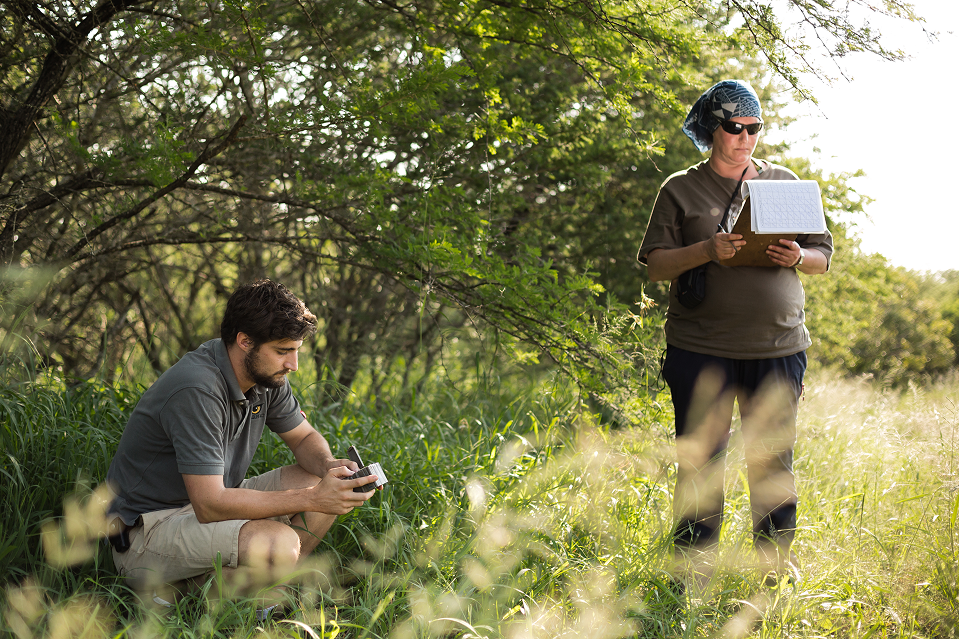
Daily Schedule and Field Reality of a Wildlife Volunteer
Days begin before sunrise, with the team heading out to locate and observe priority species in a 4x4. Start times are flexible, ranging from 04:00 to 05:00 depending on the season, species, and location. This early start ensures the team is in the field during peak animal activity. You'll experience the pre-dawn chill and witness the bush awakening as the sun rises.
Since the work is guided by animal movements and reserve priorities, no two days are alike. One day might involve hours of tracking that lead to a rare sighting, while another might involve a lengthy search with no definitive outcome. This unpredictable nature is the reality and value of conservation work.
Midday breaks are for rest, data entry, and team discussions, allowing you to reflect on the morning and prepare for the afternoon. This time is also used for essential camp and logistical duties like communal meal prep, collecting camera trap cards, and reviewing field logs.
This rhythm reflects wildlife patterns, ensuring the team operates efficiently while covering as much ground as possible.
Volunteers assist with:
- - Telemetry tracking of collared wildlife
- - Recording field data and entering it into monitoring databases
- - Maintaining and checking camera traps
- - Identifying individual animals through ID kits
- - Supporting reserve logistics like fence checks or carcass investigations
- - Responding to callouts or wildlife emergencies alongside monitors
Typical Daily Flow
- - Early Morning Monitoring Session: Tracking begins with use of VHF telemetry to locate collared species such as African Wild Dogs, Cheetahs, Lions, and Black Rhinos. Volunteers assist with monitoring from the Monitoring Vehicle, collect observational data, and help maintain real-time field records.
- - Midday: This period is used for meal preparation, rest, education, and support tasks. Volunteers might assist with camera trap card collection, data sorting, ID kit updates, and camp maintenance (e.g. cleaning, meal prep, basic repairs).
- - Afternoon Monitoring Session: A second round of fieldwork focuses on checking up on species of concern, filling data gaps, or responding to conservation priorities. The afternoon sessions are usually the same as the morning ones but with a different individual focus or same animals if priority is high.
- - Evening: After sunset, the team returns to camp for debriefs, note-taking, and communal meals. Volunteers have personal time to reflect or connect with others before resting for the early start the next day.
“The volunteering program was amazing! We could see the impact of conservation activities and how monitoring plays an important role in those. The atmosphere and the Wildlife ACT staff was excellent and they made you feel at home.” - German Ferreira (June 2024)
Read more about what a day volunteering with Wildlife ACT looks like here: A Typical Day Volunteering With Wildlife ACT
Join the Frontlines of Conservation: Become part of a team that works where it matters most, supporting the long-term survival of Endangered species.
Real Conservation Outcomes
The work you do as a Wildlife ACT volunteer is a vital, data-driven part of real conservation efforts in South Africa. The impact of your contribution can be seen in the long-term survival of species and the effective management of protected areas.
Since the program began, volunteers have helped directly protect some of South Africa’s most threatened species, including:
- - African Wild Dogs: by supporting pack management and population viability through daily monitoring. (TimesLIVE)
- - White and Black Rhinos: monitoring of both white and black rhino
- - Cheetahs and Leopards: by contributing photo identification and tracking data for conservation strategies.
- - Vultures: by monitoring nests and movement patterns as part of national conservation efforts. (Good Things Guy / SA People / IOL / Getaway.co.za)
- - Lions: monitoring for informed species and protected area management.
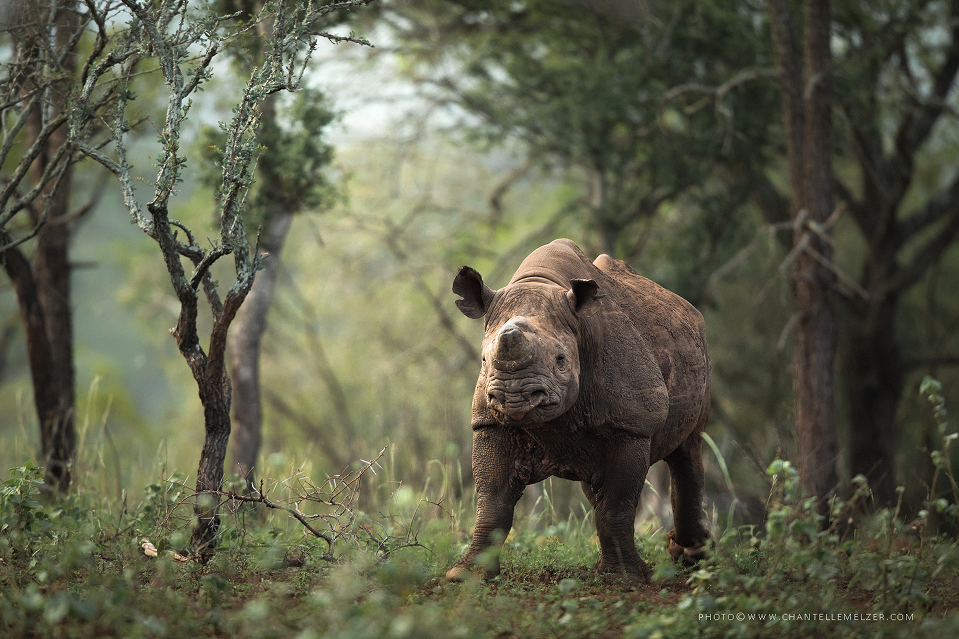
In 2023 alone, Wildlife ACT volunteers contributed:
- - 8,438 field hours monitoring endangered species
- - 104,426 kilometres driven during monitoring sessions
- - 3,017 verified data recordings of priority species
- - 457 volunteers engaged across South Africa and Seychelles
These numbers reflect not only effort, but effectiveness. The program's sole purpose is to provide professional support and contribute to the survival of species at risk of extinction. The data collected is used by partners like WWF, Ezemvelo KZN Wildlife, the Endangered Wildlife Trust, and Panthera. It goes directly into species recovery plans and transboundary population assessments.
This commitment earns the trust of our protected area partners, allowing us to build long-term relationships with these organisations.
A Meaningful and Recognised Contribution
The data gathered by our volunteers is valuable and legitimate. Our work has been recognised by leading conservation authorities and tourism bodies, including:

- - Winner of the WTM World Responsible Tourism Award for Nature-Positive Tourism (2023)
- - Multiple-time recipient of WTM Africa Responsible Tourism Awards
- - Active member of the International Union for Conservation of Nature (IUCN)
- - Official partner of the WWF Black Rhino Range Expansion Project
- - Member of the KwaZulu-Natal Wild Dog Management Group
- - Key contributor to the KwaZulu-Natal Leopard Monitoring Project, in collaboration with Ezemvelo KZN Wildlife and Panthera
- - Founding partner of the Bearded Vulture Task Force (BVTF)
- - Founding partner of the Zululand Vulture Project (ZVP)
- - Member of the National Biodiversity Management Plan for Vultures working group
- - Active member of the Lion Management Forum
This recognition reinforces the importance of the work you do. (Business Day / Getaway.co.za)
Every kilometre travelled, every collar signal tracked and every camera trap checked has a wider conservation purpose. You help ensure animals are accounted for. You help identify threats early and record population trends consistently. These efforts help reserve managers:
- - Identify wildlife corridors and habitat bottlenecks
- - Respond quickly to health risks or conflict situations
- - Adjust land-use practices to better support biodiversity
It is a meaningful contribution to the long game of species survival.
As Aileen Robertson (September 2024) told us, “We chose Wildlife ACT because of our interest in the Wild Dogs and no other experience could have given us such amazing sightings.”
A Focus on Ethical Conservation
Wildlife ACT operates under a strict ethical framework that is central to our entire mission. This core principle shapes every decision we make in the field. (Getaway.co.za)
All monitoring activities are conducted under the direct guidance of trained professionals. There is a firm rule of no captive breeding, no animal handling for tourism purposes, and no unnecessary interference with wildlife.
Unlike many wildlife volunteering options, our program:
- - Operates with permission and under the guidance of provincial conservation authorities.
- - Focuses on field-based data collection that directly supports endangered species conservation.
- - Maintains small group sizes to ensure personal supervision, data accuracy and a reduced ecological footprint.
"It was amazing to learn so much about the animals and also the different threats the animals are exposed to. One of the coolest things I’ve ever done would recommend anyone to do it!" - Nevine Noordhoek Hegt (August 2025)
Ready to Get Your Hands Dirty? Join a professional monitoring team and contribute to real, on-the-ground conservation with purpose.
Your Contribution to a Collaborative Conservation Model
Our volunteer model was developed in direct response to a critical gap in conservation capacity across protected areas in South Africa. We recognised that many reserves, while vital for biodiversity, do not have the budget or personnel to support a full-time, professional wildlife monitoring team. In these cases, Wildlife ACT enters into formal partnerships with the reserve management authority to provide this essential service.
Your participation enables Wildlife ACT to provide this professional wildlife monitoring service free of charge to these areas. This collaborative effort is at the heart of our mission, which is to support real, long-term conservation in one of the most ecologically rich regions of South Africa. The presence of volunteers allows Wildlife ACT to deliver high-impact conservation work where it is needed most.
You can see the direct results of this model in action by exploring our annual impact reports.
This is not a passive or observation-based experience, but a purpose-driven initiative designed to contribute to species protection and habitat conservation in real-time. The model exists to support monitoring operations that would not otherwise be possible in many of the protected areas where Wildlife ACT works.
This is a core element of our identity. Our program is structured to deliver tangible results by aligning volunteer efforts with the actual, urgent needs of a protected area. It is a genuine collaboration. Volunteers contribute their time, energy and fees, which in turn provides the human resources and financial capacity that a reserve may lack. This synergy creates a powerful feedback loop. The data is collected, it is used by park managers to make informed decisions and the volunteer can see their direct impact.
This collaborative model has allowed us to operate for over a decade in some of South Africa’s most critical conservation landscapes. It ensures that every person who joins the program becomes an indispensable part of a functioning conservation team.
The model's success is a testament to the power of aligning passion with purpose.

Supporting Endangered Species Recovery
Your efforts directly contribute to the survival and recovery of some of Africa’s most threatened animals.
Our work focuses on key species such as the African Wild Dog, Cheetah, and Black Rhinoceros. The data you help collect is vital for long-term conservation success. It informs provincial metapopulation strategies and supports the reintroduction and translocation of individuals between protected areas to maintain genetic diversity.
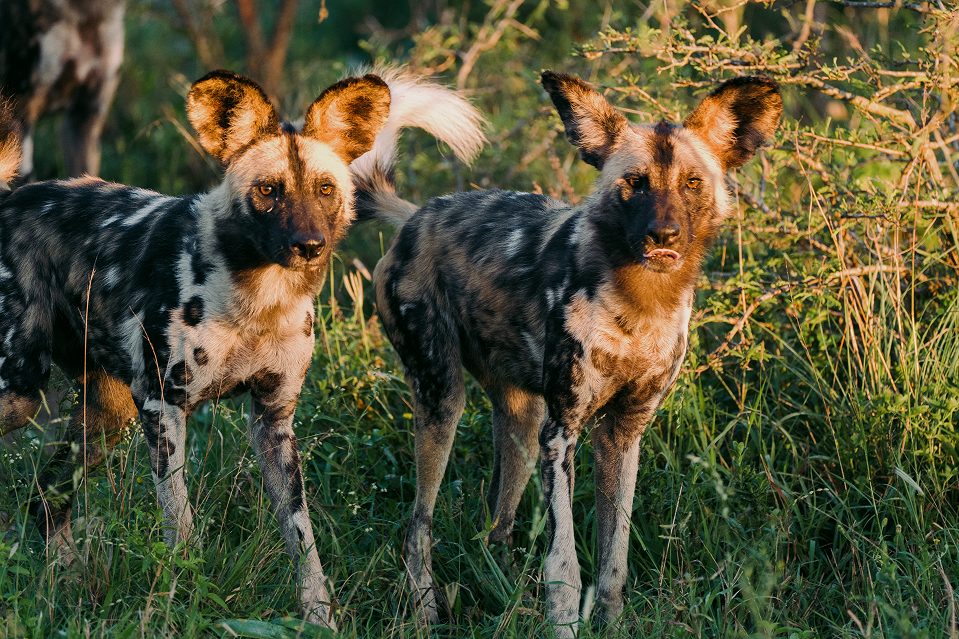
- - Consistent monitoring is essential for managing African Wild Dog packs and enabling timely intervention for threats like snaring, dispersal events, or behavioral changes. As one of Africa's most endangered carnivores, African Wild Dogs rely on strong pack dynamics for survival. Your work in documenting their movements and social structures helps track these dynamics and identify signs of distress. The data you collect is a cornerstone of the national metapopulation strategy, which ensures the species' long-term viability by maintaining genetic health across different reserves.
- - Similarly, your assistance is crucial for monitoring Cheetahs' movements, health, and hunting success. For new introductions, our teams provide vital post-release monitoring to ensure they adapt successfully. This data helps conservation authorities make informed decisions about future relocations. Your assistance contributes to building a detailed history for each cheetah, which is essential for understanding reintroduction success and for the ongoing management of this vulnerable species.
- - For the critically endangered Black Rhinoceros, monitoring is vital for tracking individual movements, home ranges, and signs of stress or injury. This consistent data collection is crucial for a species under constant threat from poaching and habitat loss. The information is shared with reserve management to guide anti-poaching and security responses. Your assistance with telemetry and data collection directly enhances the security of these vulnerable individuals and acts as an early warning system. Our teams also support authorized conservation interventions, such as rhino dehorning and notching operations, which are essential for long-term identification,management, and antipoaching efforts.
Without this consistent, on-the-ground monitoring, it would be much harder for reserve management to make informed decisions about species health and population stability.
The sheer volume and frequency of data required to track these metrics are immense. Inconsistent monitoring creates critical gaps, making it impossible to identify key trends in population dynamics, habitat use, or animal behaviour.
The patient, detailed data you contribute to is a foundational part of a larger conservation delivery process that empowers professionals with the knowledge they need to act. Your daily work, from logging a GPS coordinate to a note on an animal's behaviour, helps to build a long-term data set that matters.
This data becomes a scientific legacy, informing crucial decisions for years to come.
For instance, this information helps determine where to focus anti-poaching patrols, whether a species is successfully adapting after a relocation, or if a population is healthy enough to support a new reintroduction effort.
Every day in the field, you are helping to build a long-term data set that matters, a scientific cornerstone that turns observation into tangible conservation impact.
In the beginning, we realised that we shared a common vision:
We wanted to roll up our sleeves and work at a very practical level in the field to
help save Africa’s endangered wildlife, recognising that these charismatic fauna
are umbrella species contributing to the conservation of ecosystems, habitats,
and other associated species.
At the same time we wanted to understand the needs of communities
surrounding protected areas and work to develop practical and sustainable
solutions to improve their livelihoods.
With that, Wildlife ACT was born in 2008.
Funding On-the-Ground Operations
The fees wildlife volunteers pay are a cornerstone of our funding model, but it is important to understand they are not for profit. They are a direct contribution to real conservation action, a vital investment in the long-term sustainability of our projects. These fees are carefully allocated to cover the full, on-the-ground operational costs that keep our monitoring teams active and effective on the reserve.
This includes a number of essential and often overlooked expenses:
- - Maintenance of our rugged 4x4 field vehicles
- - Fuel required for daily patrols across vast protected areas
- - Upkeep of critical tracking equipment like GPS units and VHF telemetry collars
- - Salaries for our dedicated professional conservation staff
Because of this carefully structured model, Wildlife ACT is able to offer its professional monitoring services to protected areas free of charge.
This is a crucial part of our collaborative approach, as it ensures that limited government or reserve conservation budgets are not further strained. Without this support, many protected areas would go unmonitored for priority species, with critical data gaps making it much harder for reserve management to respond to threats or make informed decisions.
Your contribution is therefore a clear and transparent demonstration of a collective effort responsibly harnessing resources to protect our shared natural heritage and deliver tangible conservation results. It is a direct line from your purposeful travel to measurable conservation impact.
Your funding directly sustains field teams that deliver measurable results in the form of daily monitoring and data collection, allowing us to build the long-term datasets that are so critical for species recovery.
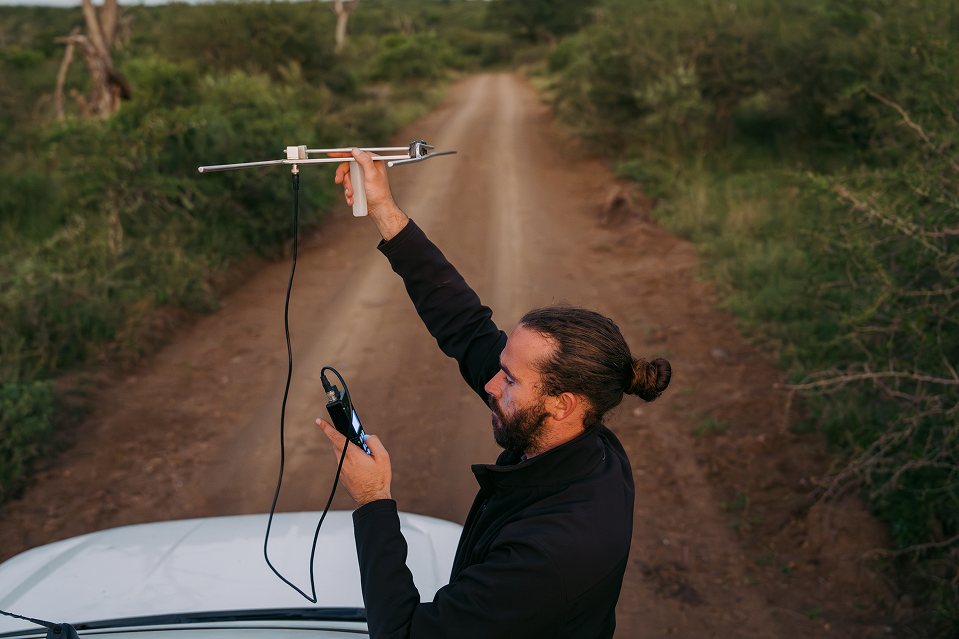
Your Purposeful Journey Begins Here: Join Wildlife ACT's team and play a vital role in protecting Africa's wild spaces and the species that call them home.
Where You’ll Be Working: Zululand’s Protected Areas
Wildlife ACT’s Endangered Species Volunteer Project operates across three exceptional protected areas in Zululand, KwaZulu-Natal: the Hluhluwe and iMfolozi sections of Hluhluwe-iMfolozi Park, and Manyoni Private Game Reserve.
Each site plays a vital role in South Africa’s conservation landscape, contributing unique ecological value and conservation opportunities. Volunteers may rotate between these sites to gain a broader understanding of conservation in varied habitats.
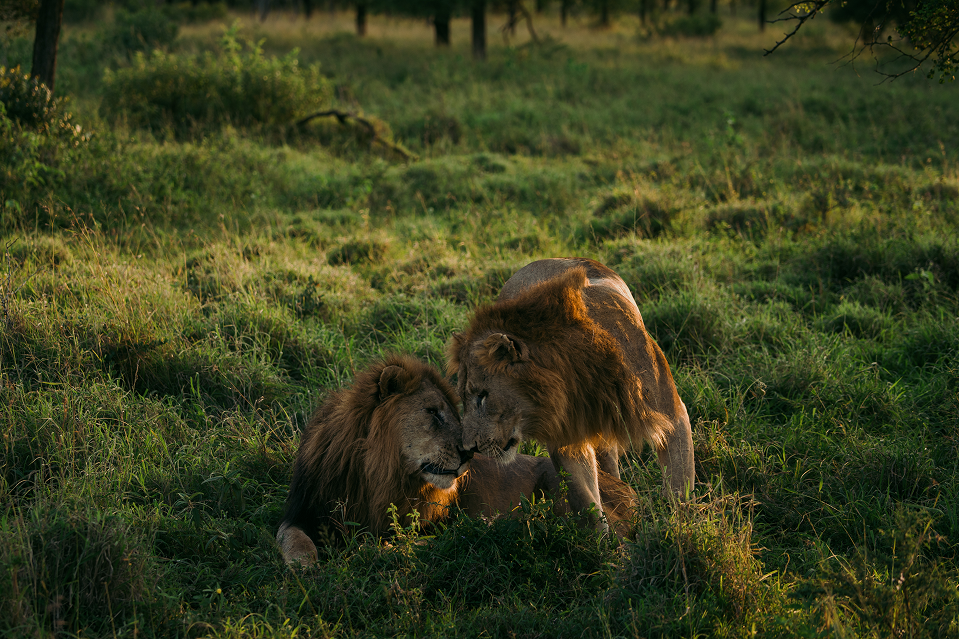
- - Hluhluwe Section – Hluhluwe-iMfolozi Park: As part of Africa’s oldest proclaimed protected area, the Hluhluwe section is known as the birthplace of modern rhino conservation. Volunteers live at a research camp called “Dung Beetle” and assist with monitoring species like African Wild Dogs, Lions, Vultures, Rhino, and Cheetahs.
- - iMfolozi Section – Hluhluwe-iMfolozi Park: This section is famous for its open landscapes and rugged terrain. You will be based in a rustic eco-camp known as Mbuzane, situated on a hillside with scenic views. The work here focuses on monitoring African Wild Dogs, Cheetahs, Lions, Vultures, White and Black Rhinos, and Southern Ground Hornbill.
- - Manyoni Private Game Reserve: Manyoni is a large, privately managed protected area with a reputation for conservation innovation. Volunteers stay in a secluded house and assist with monitoring a wide variety of species, including Cheetahs, Lions, and Rhino. This site’s structured terrain is well suited for consistent data collection.
Each protected area is selected based on ecological significance, alignment with national and provincial conservation strategies, and its ability to host real-time field-based conservation work. Volunteers may rotate between sites depending on program duration and conservation needs, gaining a broader understanding of species conservation in varied habitats.
Download the Zululand Volunteer Camps Guide
To give you a clear, honest look at what is involved, we have put together a detailed guide to our volunteer camps in Zululand. The guide includes a full overview of the three project sites you can join: Manyoni Private Game Reserve, Hluhluwe-iMfolozi Park, and the Hluhluwe section of the same park.
Inside, you will find practical information and a look at the realities of life in the field, including details on:
- - Accommodation: Learn about the secluded house at Manyoni, the eco-camp at iMfolozi, and the research camp at Hluhluwe.
- - Daily Activities: Understand the hands-on tasks you will be involved in, from using telemetry tracking equipment to setting up camera traps and collecting data for conservation management.
- - Trip Planning: Get the facts on things like trip duration, group size, and starting dates for 2025 and 2026.
This guide is for anyone who wants to learn more about a meaningful volunteer experience in the heart of Zululand. It is for those who are ready to roll up their sleeves and contribute to real conservation.
Frequently Asked Questions
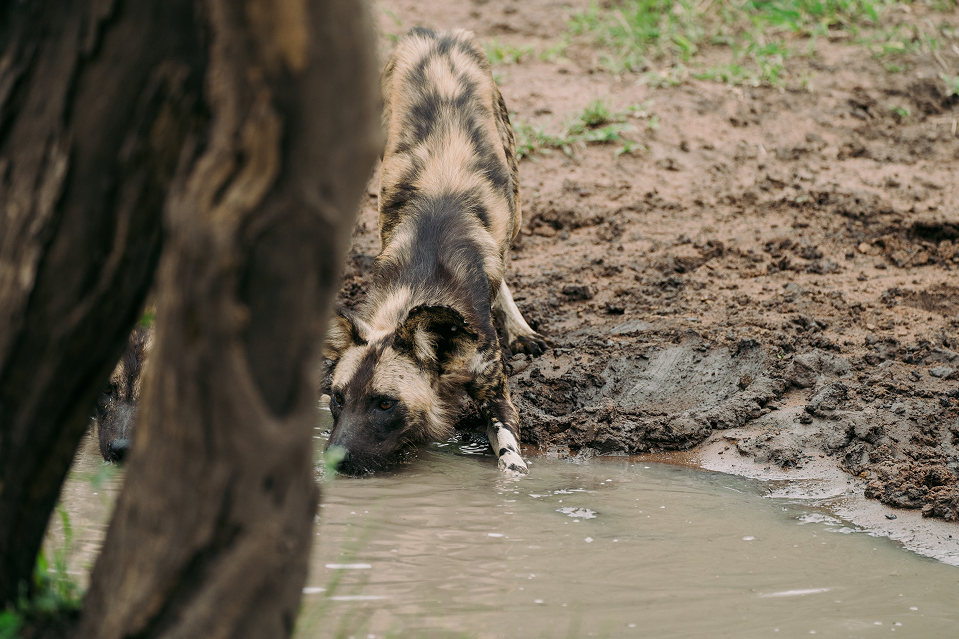
1. What species will I be monitoring?
You will assist in monitoring a range of Endangered and Priority species such as the African Wild Dog, Cheetah, White and Black Rhinoceros, Lion, Elephant, and various Vulture species. Each site has its own unique ecological context and target species. For example, volunteers in the Hluhluwe section of the park focus on carnivore dynamics while those in the Manyoni Private Game Reserve focus on a wider range of biodiversity.
2. Is this a guaranteed wildlife viewing experience?
While working in the protected areas, you will have opportunities to see wildlife, but sightings are never guaranteed. The work is driven by conservation priorities and animal movements, not by tourism. The focus is on the authentic, sometimes unpredictable, reality of conservation fieldwork, which is what makes it so valuable. This transparency is central to maintaining trust with protected area partners and with you, our volunteers.

3. What are the living arrangements like for wildlife volunteers?
Accommodation is provided at or near each project site and reflects the realities of remote conservation work. You will share a room, and there are communal kitchens and bathrooms. Volunteers work together to cook, clean and maintain the camp, fostering a strong sense of team. The focus is on simplicity and functionality.
4. What kind of support is provided to volunteers in the field?
Volunteers are always supervised by a trained Priority Species Monitor who provides guidance and hands-on support. Each monitor is trained in first aid. The field team maintains close communication with the head office for logistical support. We ensure that volunteers are well-looked-after and prepared for fieldwork.
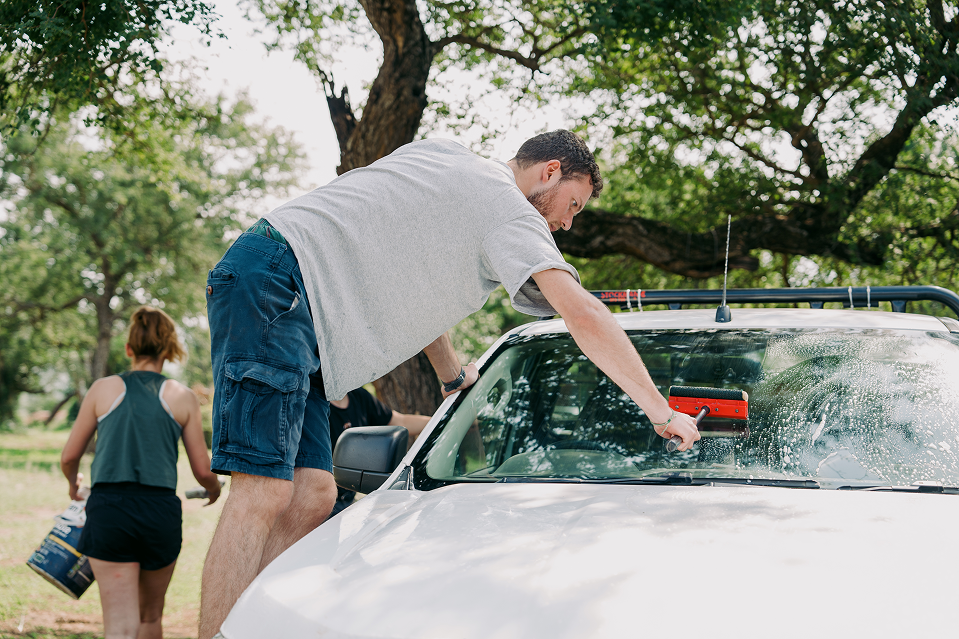
5. Is there any animal interaction?
No. We follow a strict ethical policy that prohibits animal interaction for tourism purposes. All monitoring activities are conducted in the wild and from a safe distance. Volunteers do not touch or handle animals unless they are participating in a pre-approved, essential conservation intervention under the supervision of a professional.
6. What are the physical requirements for the program?
The work can be physically demanding, with early starts, long drives and extended tracking efforts across uneven terrain. A basic level of fitness and a positive, adaptable mindset are essential. You should be prepared for long days and varied conditions.
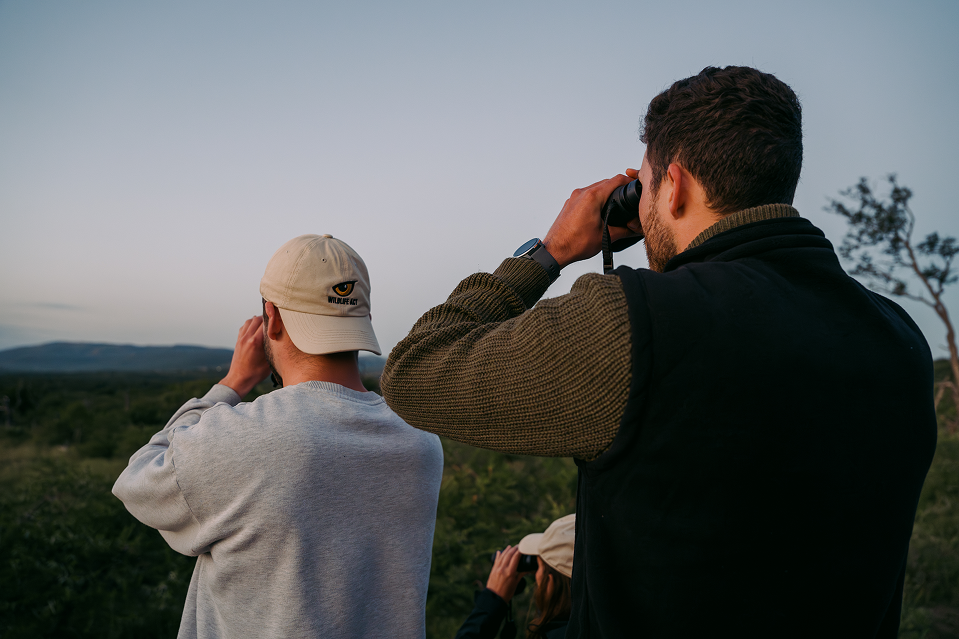
7. What should I pack for my trip?
We provide pre-arrival checklists with detailed packing tips. Essential items include comfortable, neutral-coloured clothing suitable for fieldwork, a hat, sturdy closed shoes, sun protection and a reusable water bottle. The checklist will cover everything you need to be prepared for life in the field.
8. What happens if there is a conservation emergency?
For any questions regarding health, safety, or emergency procedures, we’ll refer you to one of our team members. Our in-field monitors are trained in first aid and follow strict safety protocols. All volunteers receive a full safety briefing upon arrival to ensure they are prepared for the realities of working in a wild environment.
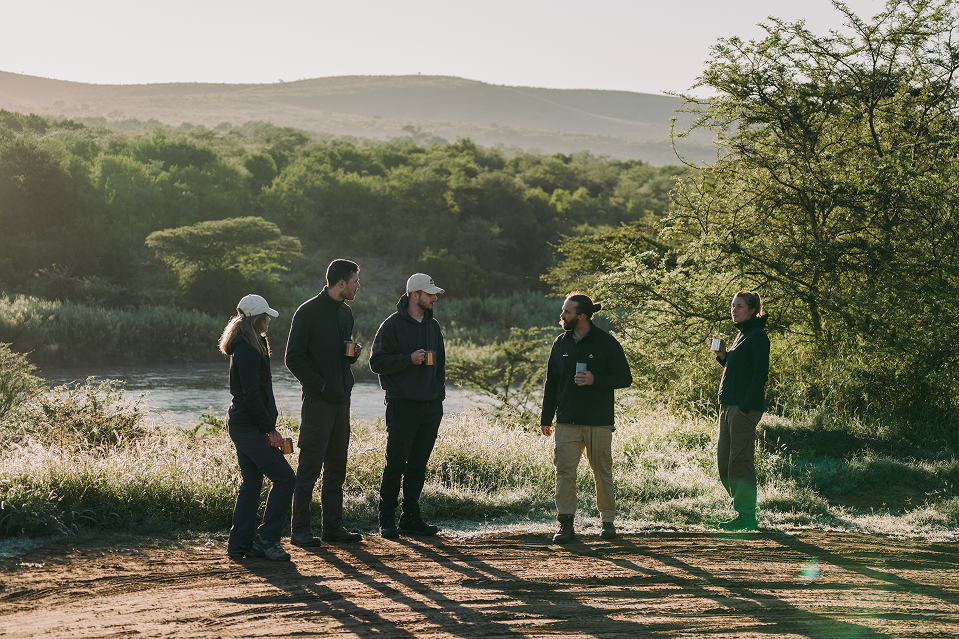
9. What is the food situation and can I be accommodated for dietary needs?
Wildlife ACT provides the ingredients for three meals a day. As a team, volunteers take turns preparing the meals for the group. The projects can accommodate vegetarian, vegan, lactose-free, and gluten-free diets with advanced notice, but you will need to bring your own specialty items, snacks, or supplements. Shopping is done as a collective in town each Monday.
10. How can I stay connected while volunteering?
Mobile phone signal is variable and often limited depending on the terrain. While Wi-Fi is available at most camps, it may be restricted to certain times or limited by data usage. You should plan around these constraints and use downtime to stay connected as needed. Communication with staff is managed daily through briefings, check-ins, and debriefs, and emergency contact procedures are clearly outlined when you arrive.
11. What are Wildlife ACT’s safety and ethical standards?
Wildlife ACT maintains a high standard for volunteer safety and conservation ethics. All fieldwork is supervised by a trained Priority Species Monitor. Because camps are located in Big 5 areas, safety protocols are non-negotiable. These protocols include monitoring from vehicles and regular radio check-ins, with all volunteers receiving a thorough safety briefing upon arrival. Ethically, Wildlife ACT does not breed animals, operate sanctuaries, or allow hands-on encounters. The program's ethical approach is recognised by the World Responsible Tourism Awards. All activities are purpose-driven, with no cub petting or staged photo opportunities. Volunteer data directly supports conservation outcomes through partners like Ezemvelo KZN Wildlife and WWF South Africa.
Volunteer Testimonials and Voices From the Field

"As always, I would fully recommend these projects to anyone, whether they are from a conservation background or not, there is something for everyone." - Zoe Phillips (January 2025)
"I thought it was very nice that as a volunteer you get to feel like you’re part of the team, be that by taking specific pictures to identify an animal, making ID kits, looking through camera traps, and so on." - Jonathan Dutt (January 2025)
"It was absolutely amazing being able to see so many species in the wild and meeting new people that are just as passionate about helping animals as I am." - Amy Doherty (January 2024)
"This trip will forever stay with me. Nothing will beat staying off the grid in the middle of the park with like-minded people from around the world. From the monitors to the other volunteers everyone was incredibly welcoming and will definitely be coming back in a heartbeat." - Katelyn Lord (July 2024)
"Exceeded expectations and delivered exactly what I was looking for - an experience in South Africa with wildlife that has a positive impact. It delivered experiences beyond which I could imagine before coming here." - Ann Vandecapelle (September 2024)
Our Final Thoughts
Volunteering with Wildlife ACT is a hands-on, deeply purposeful experience. This is not simply a travel experience, but an opportunity to be part of a real conservation team. You will be part of a team delivering professional monitoring services that directly inform conservation strategies and support species recovery. This work is both demanding and profoundly rewarding, offering a tangible link between your efforts and the long-term survival of Africa’s most threatened species. The sense of camaraderie and shared purpose that develops among team members is a powerful takeaway for many. Many who join us become long-term supporters, fundraisers, and ambassadors for ethical conservation practices.
This is the kind of meaningful travel that leaves a lasting impact on you and on the world.
If you are looking for a conservation solution that works where it matters most, and you want to be part of a story of hope and resilience, we invite you to explore our volunteer program and learn how you can join our team.
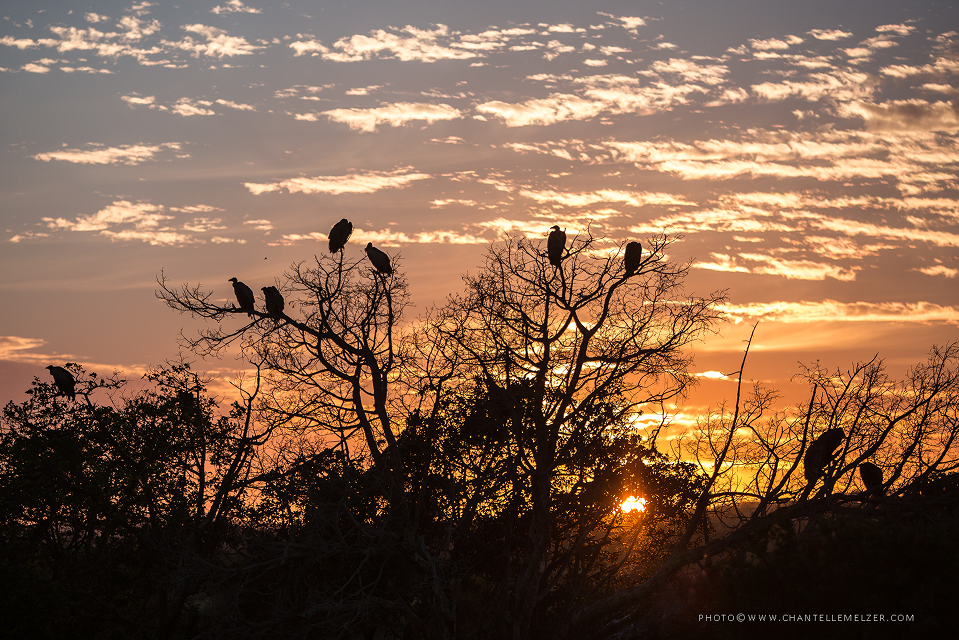
Ready to Get Involved?
We know that deciding to volunteer is a big step, but the process of joining our team is simple and straightforward. To guide you, we've created a short guide that outlines everything from the application process to what's included in your trip. This resource will ensure you are well-prepared to step into the field with confidence, ready to contribute meaningfully to real conservation.
Your time in the field will directly support endangered species like the African Wild Dog, Black Rhino, and Cheetah. You’ll join a team of dedicated conservationists, learn new skills, and become part of something bigger than yourself.
Answer the Call of the Wild: Step into the field and help build the data sets that inform critical decisions for species recovery.
References:
- Business Day NG. (2023, October 19). Winners of the responsible tourism awards 2023 announced at WTM Africa. Retrieved from https://businessday.ng/life-arts/article/winners-of-the-responsible-tourism-awards-2023-announced-at-wtm-africa/
- Endangered Wildlife Trust. (n.d.). Home page. Retrieved from https://www.ewt.org.za/
- Ezemvelo KZN Wildlife. (n.d.). Home page. Retrieved from http://kznwildlife.com/
- Getaway. (2023, November 1). Wildlife ACT awarded 'Best for Nature Positive Tourism'. Retrieved from https://www.getaway.co.za/travel-news/wildlife-act-awarded-best-for-nature-positive-tourism/
- International Union for Conservation of Nature. (n.d.). Home page. Retrieved from https://www.iucn.org/
- Naidoo, J. (2022, March 25). Wildlife ACT calls for volunteers to help protect endangered vultures. IOL. Retrieved from https://www.iol.co.za/news/environment/wildlife-act-calls-for-volunteers-to-help-protect-endangered-vultures-41ff6f94-2c53-416b-abaf-31f587f94463
- Panthera. (n.d.). Home page. Retrieved from https://www.panthera.org
- SA People News. (2024, August 5). Southern Drakensberg Conservation Project highlights the plight of endangered vultures. Retrieved from https://www.sapeople.com/environment/southern-drakensberg-conservation-project-highlights-the-plight-of-endangered-vulture/
- Singh, B. L. (2024, July 30). Mzimkulu Vulture Hide launches to support conservation efforts. The Good Things Guy. Retrieved from https://www.goodthingsguy.com/environment/mzimkulu-vulture-hide-launches-to-support-conservation-efforts/
- Thompson, T. (2023, January 12). How you can help protect endangered vultures. Getaway. Retrieved from https://www.getaway.co.za/travel-news/how-you-can-help-protect-endangered-vultures/
- TimesLIVE. (2022, April 8). Pack of endangered African wild dogs released in KZN reserve. Retrieved from https://www.timeslive.co.za/news/south-africa/2022-04-08-pack-of-endangered-african-wild-dogs-released-in-kzn-reserve/
- Van Zyl, A. (2022, February 23). Wildlife volunteering holidays and ethical conservation projects in Southern Africa. Getaway. Retrieved from https://www.getaway.co.za/environment/volunteering/wildlife-volunteering-holidays-ethical-conservation-projects-in-southern-africa/
- Wildlife ACT Foundation. (2023, January 12). Day in the life of a Wildlife ACT monitor: Tracking the African wild dogs [Video]. YouTube. https://www.youtube.com/watch?v=YO6UekUBQjQ
- World Wildlife Fund. (n.d.). Home page. Retrieved from https://www.worldwildlife.org/
- WTM Africa. (n.d.). Home page. Retrieved from https://www.wtm.com/africa/en-gb.html
- WWF South Africa. (n.d.). Home page. Retrieved from https://www.wwf.org.za/
- Zululand Observer. (2023, October 19). Wildlife NGP launches conservation-focused safaris in northern KZN. Retrieved from https://zululandobserver.co.za/253599/wildlife-ngp-launches-conservation-focused-safaris-in-northern-kzn/


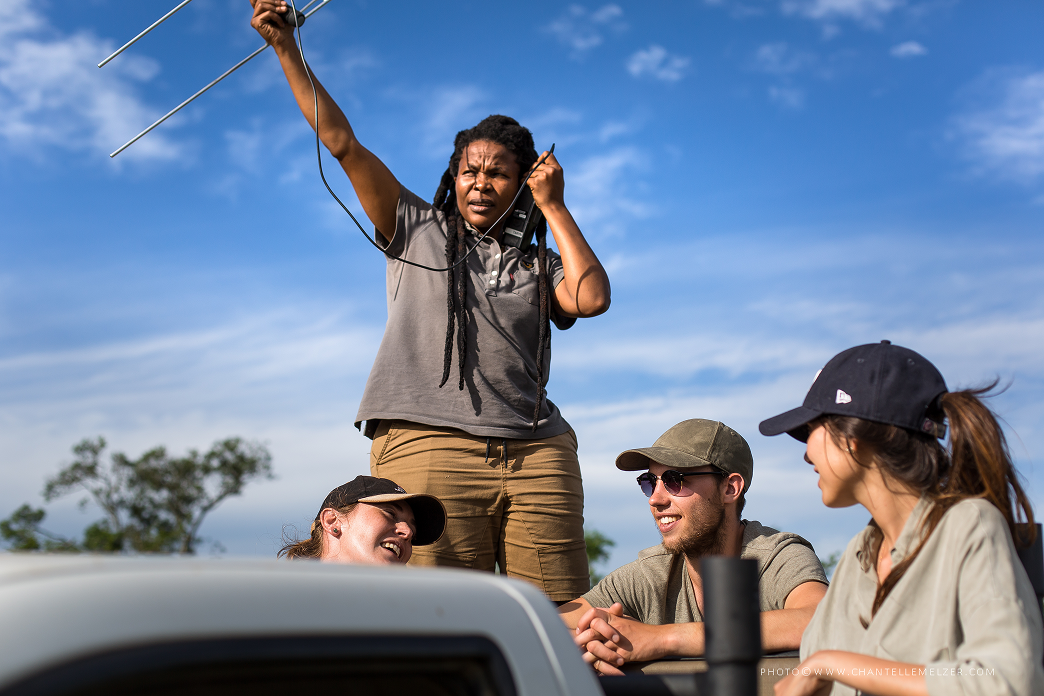
.jpg)
